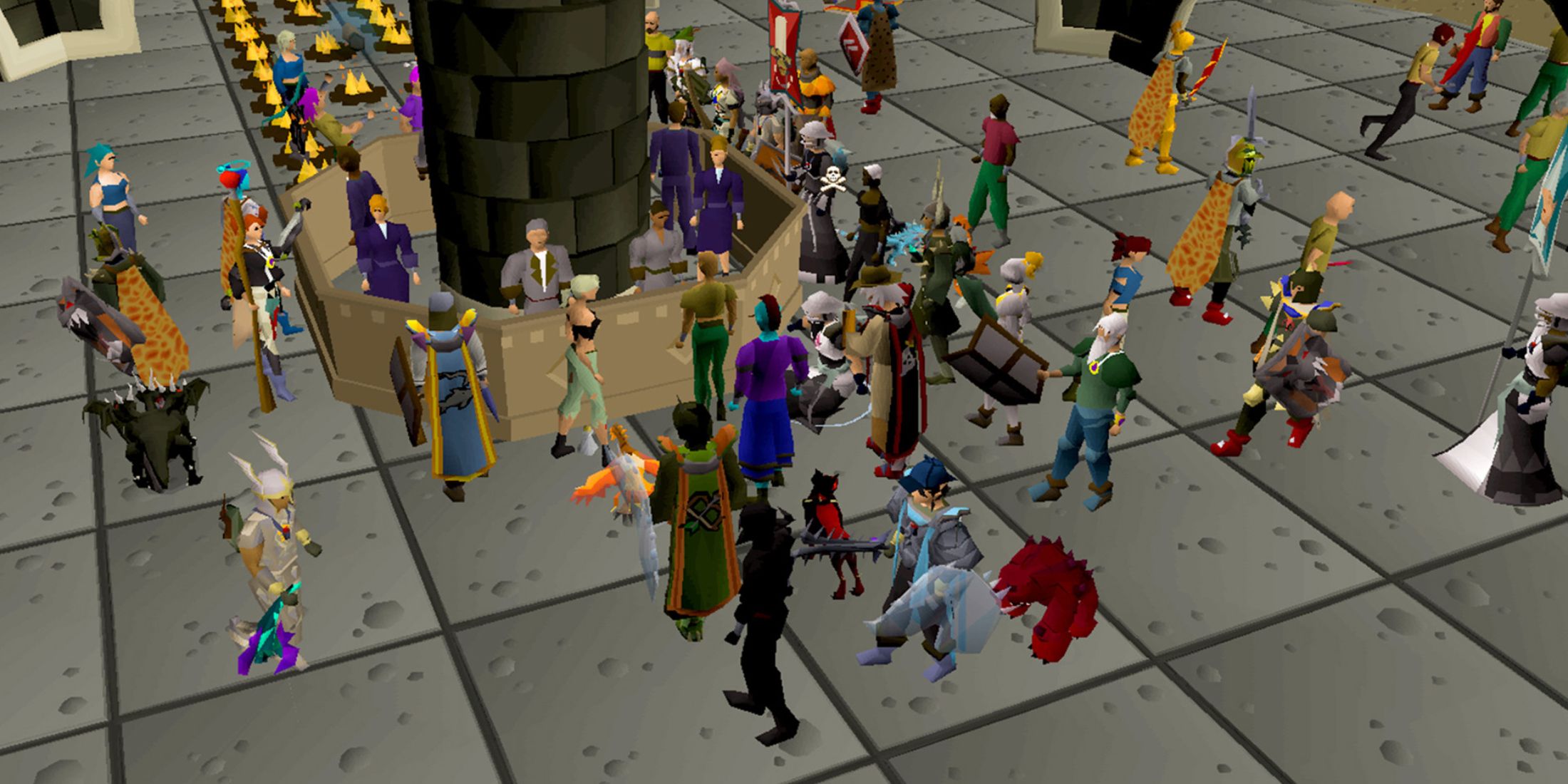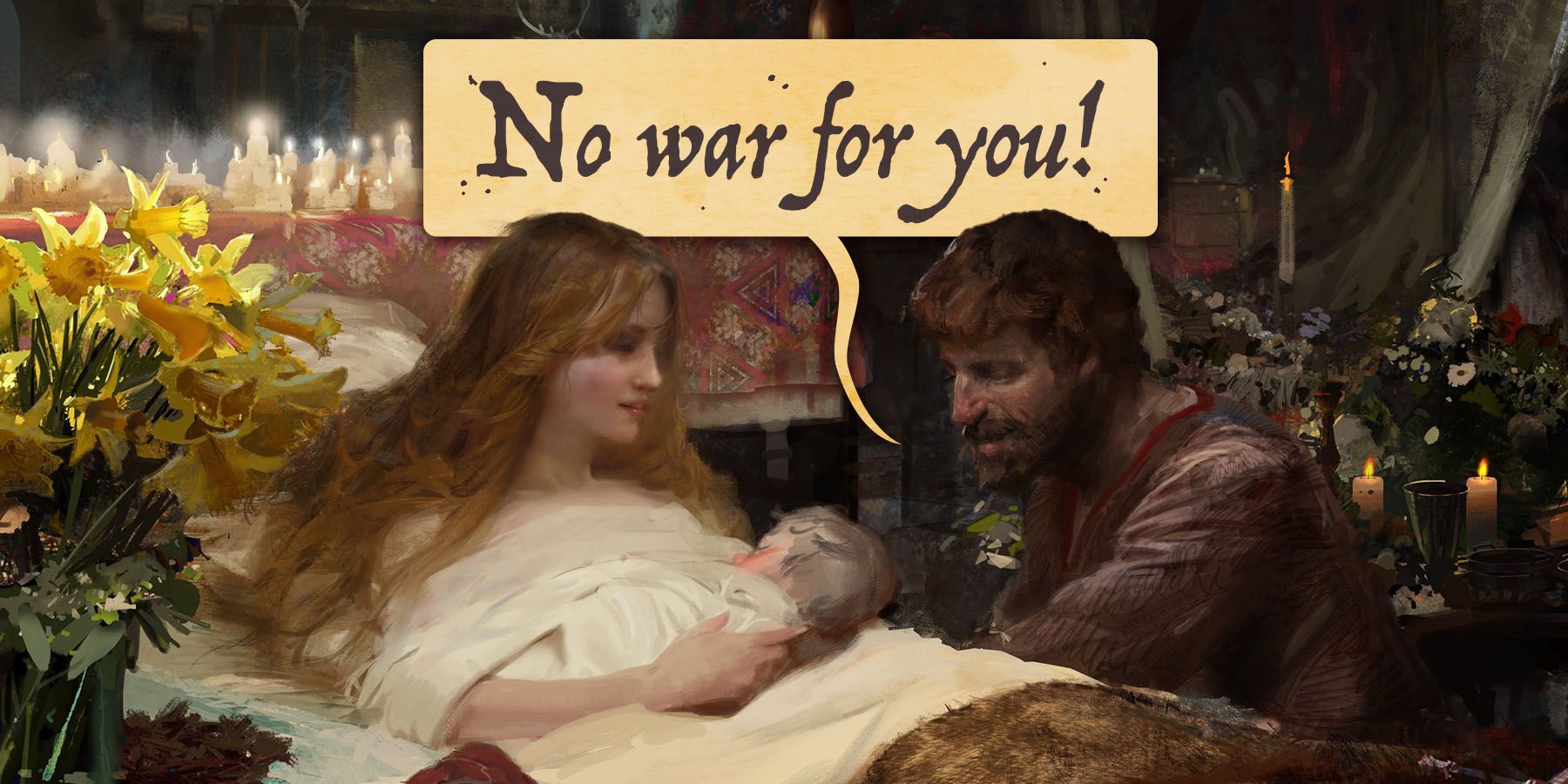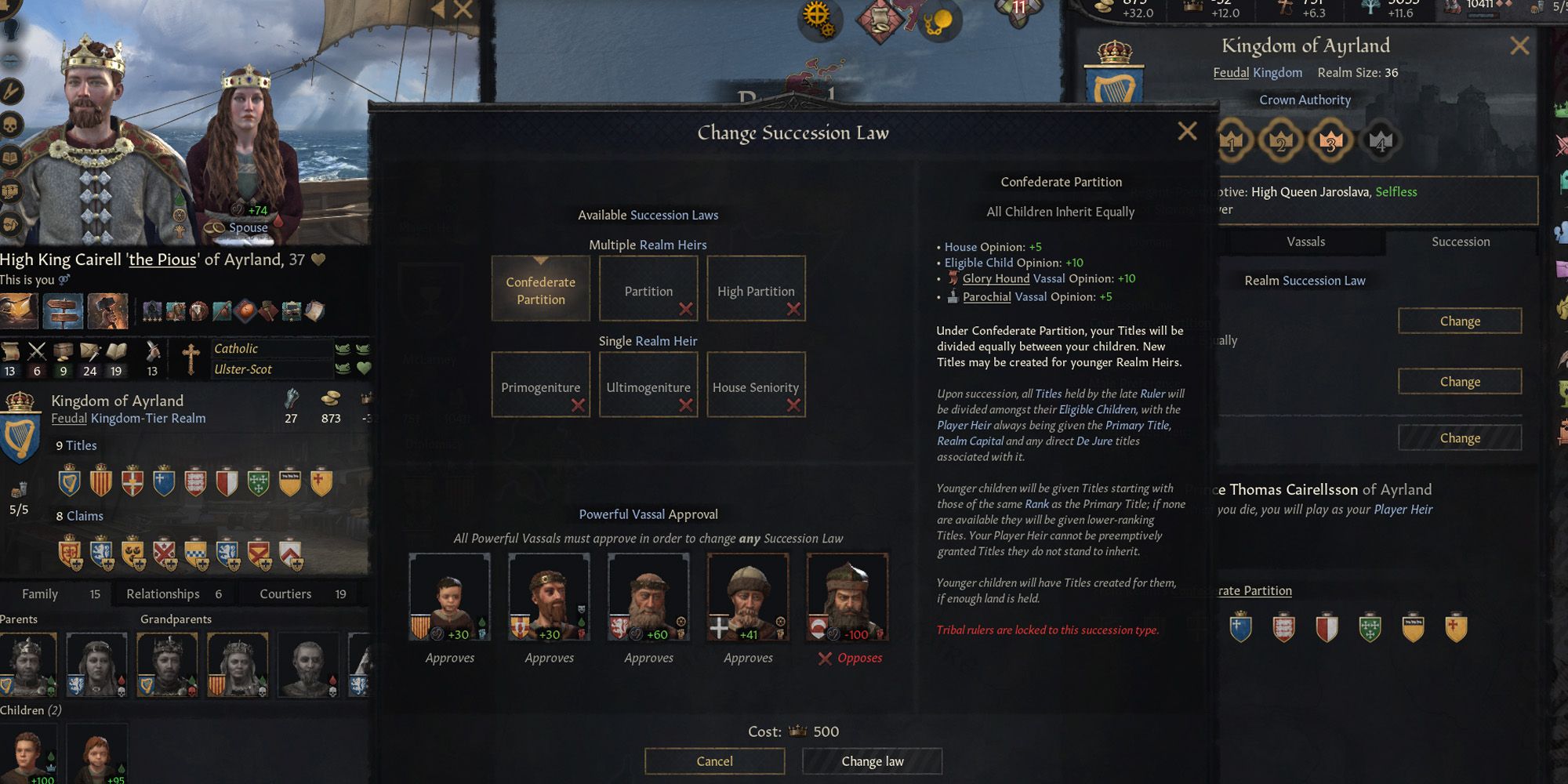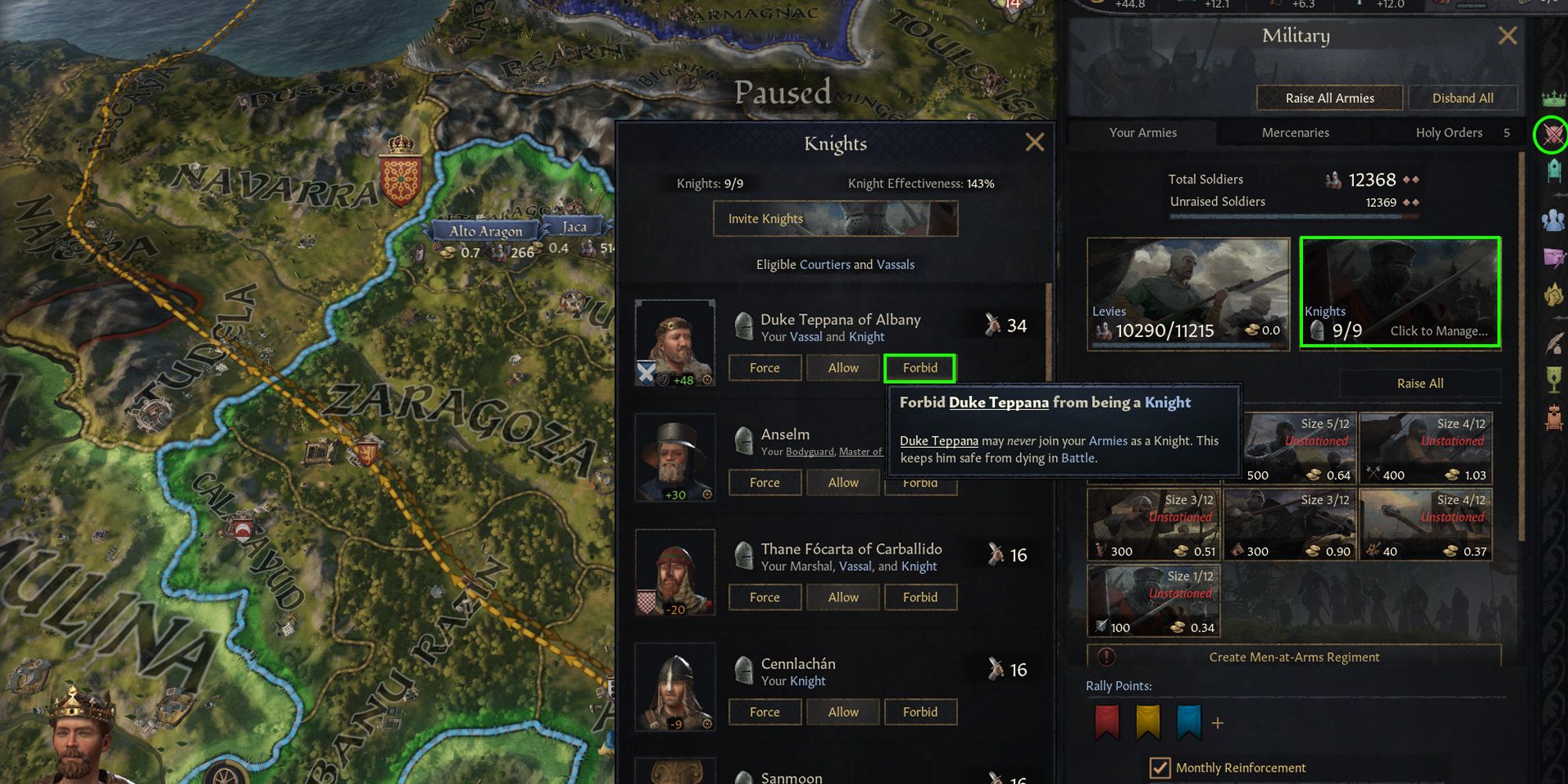Paradox Interactive's Crusader Kings 3 allows players to step into the many shoes of a Medieval Dynasty, spanning across several generations and a multitude of traditions and geographical locations. In order to secure the continuation and future of a dynasty, it will be necessary to not only produce heirs, but ensure that they survive to maturity and are in a good position to inherit power from their liege when the time comes.
There are many ways in which heirs can be lost: disease, murder, accidents in training, tournaments or on hunts, and of course being slain in battle. While this is arguably the noblest of causes and most valorous ways in which a dynasty can lose its life, it can cause a lot of headaches when it comes to succession and the future of a ruled territory. Fortunately, players can manage their knights and courtiers to ensure that the most combat-inept and valuable members in others departments are spared from being ruthlessly massacred on the front lines of a conflict.
Succession
One of the most important things for a ruler to do is to manage the succession of their kingdom. When a ruler dies, the heir or regent will take control of the powers and territories they once owned. Be aware, though, that this can change and become fragmented depending on the succession law and the number of siblings the heir has.
Ensuring a successor has also been well-educated, in order to cultivate positive traits within the dynasty, is also best done as soon as possible. However, even despite the best efforts of the player, sometimes accidents will still occur. Children might be killed during certain events, or even at random in incidents of falling, drowning or disease. Thankfully, this is more of a rarity than it is commonplace. But just to be sure, it is often safest to have a minimum of three children in line to a powerful liege's position at any one time.
Knight Management
By default, all heirs and courtiers will be available in combat as part of military exercises and excursions. This can be beneficial when these characters have a high Martial skill and operate as vassals or mere courtiers. However, for heirs and council members, this should be forbidden to ensure that the best and most highly skilled characters in areas such as Diplomacy, Stewardship and Intrigue are kept alive for as long as possible.
To forbid heirs and other courtiers from combat, select the Military tab on the right-hand side menu, then head to Knights where a list of all eligible courtiers and vassals will be displayed. From here players can select Force, Allow or Forbid next to any given character's name. Sometimes it can also be a good idea to force certain troublesome vassals or courtiers into combat, since this increases their chances of a "natural" death rather than having to create Schemes to murder them.
Crusader Kings 3 is available on PC, PS5, and Xbox Series X/S.






